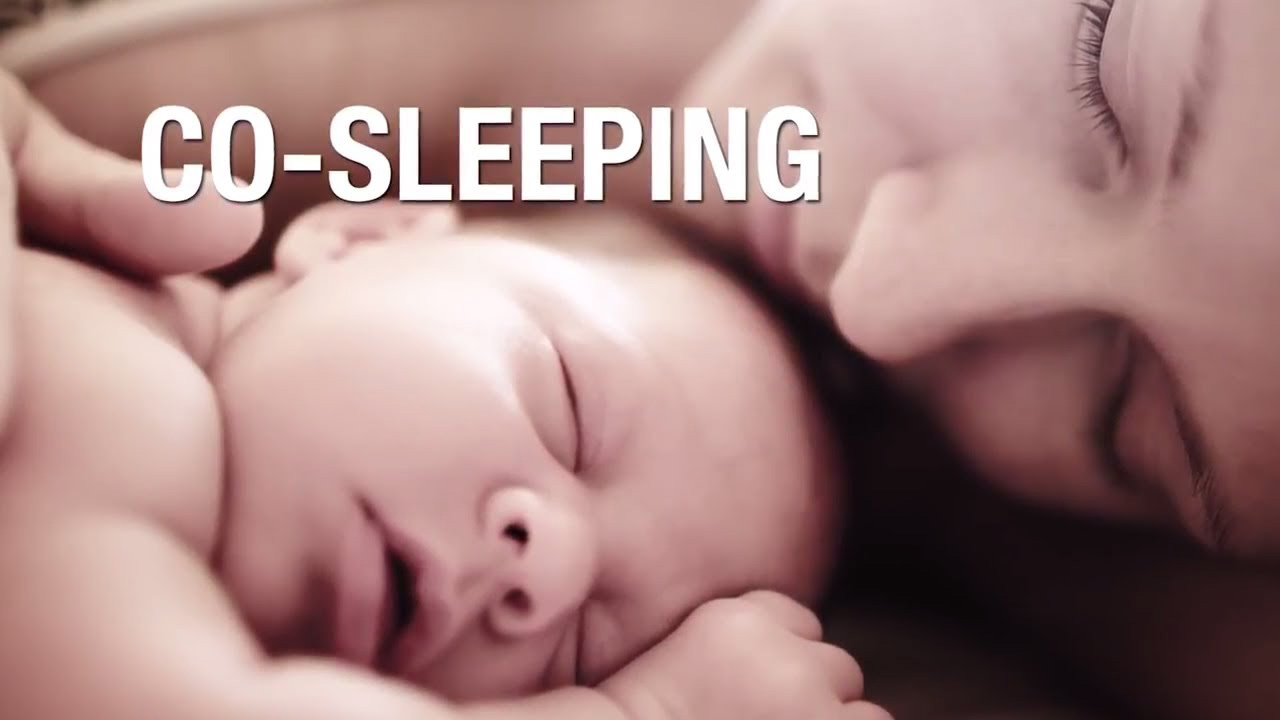Research Based Benefits of Co-Sleeping
- Well especially for breast feeding mothers, co-sleeping next to your baby is incomparable. Aside from the fact that studies have shown, including ours in our own laboratory, that both mothers and babies get more sleep. Insofar as breastfeeding is concerned, it doubles the amount of breastfeeding that the baby would otherwise experience. We were able to show in a sleep laboratory that the same mom-baby pair sleeping together over successive nights varied tremendously in the amount of breastfeeds the baby would get by virtue of the baby either sleeping in bed with the mother and/or sleeping in another room very close by. Indeed it really surprised us, it was almost like two different families that were being measured. So, the closer the baby to the mother, the greater the numbers of breastfeeds, and that of course increases mother's milk supply, and it permits mother to manage that milk, and her baby, and her sleep in a much more comfortable and/or efficient way. It's especially important for the human infant to sleep close to it's mother and exchange these sensory signals. Of all the mammals, of all the primates, be they monkey, apes, or man, the order to which we belong, the human infant is neurologically the least mature at birth than any other primate. Indeed it's only reached 25% of it's adult brain volume. So, it's own nervus system expects to engage, to create a, what's called a micro environment that would protect and buffer this extremely vulnerable infant. Human infants are the most vulnerable, the most helpless, they're unable to talk, walk, they're really unable to communicate in terms of language, etc. And their bodies are designed to engage with the mother in similar ways to how the fetus engages with it's mother during gestation. And indeed the only way we can get human babies born that could survive in this way is to have a dependency unlike any other mammal infant. And by that I mean, the regulation, the external regulation of the baby's body by virtue of the presence of the mother. And that is what buffers this extreme neurological immaturity that characterizes the human species.
James McKenna, Phd, explains how both babies and moms benefit from co-sleeping based on scientific research.
Related Videos
Transcript
Expert Bio
More from Expert
James McKenna, PhDAnthropologist & Author
Professor James J. McKenna is recognized as the world’s leading authority on mother-infant co-sleeping, in relationship to breastfeeding and SIDS. In recognition of his work in 2009 he was admitted as a Fellow into the select body of the American Association for the Advancement of Science, the world's most prestigious scientific society. That same year and in recognition of his extensive work with television, radio, and print media he received from the American Anthropological Association the “2008 Anthropology In The Media Award” one of the top three awards presented to anthropologists by the association in recognition of his distinguished work in educating the public to the importance of anthropological concepts. He received his undergraduate degree in anthropology from the University of California, Berkeley in 1970, his Master's Degree from San Diego State University in 1972, and his PhD in biological anthropology from the University of Oregon, Eugene, in 1975. Professor McKenna has published over 139 refereed scientific articles in diverse medical and anthropological journals on co-sleeping, breastfeeding, evolutionary medicine and SIDS, and both here and abroad he gives over 20 lectures especially to pediatric groups and parents. Here in the United States he remains one of the primary spokesperson to the media on issues pertaining to sleeping arrangements, nighttime breast-feeding and SIDS prevention. He has also published two monographs on SIDS and infant sleep, and co-edited two books: Evolutionary Medicine and Evolutionary Medicine And Health: New Perspectives. His first trade book for parents was published in 2008 entitled: Sleeping With Your Baby: A Parents Guide To Co-Sleeping, and was recently translated and available in Spanish and Dutch.




 GET ACCESS TO ALL PREMIUM CONTENT WITH NO ADS FOR $4.99/MONTH
GET ACCESS TO ALL PREMIUM CONTENT WITH NO ADS FOR $4.99/MONTH




Login or Register to view and post comments